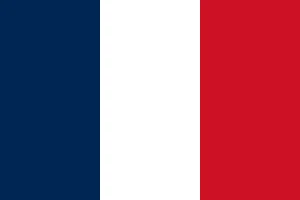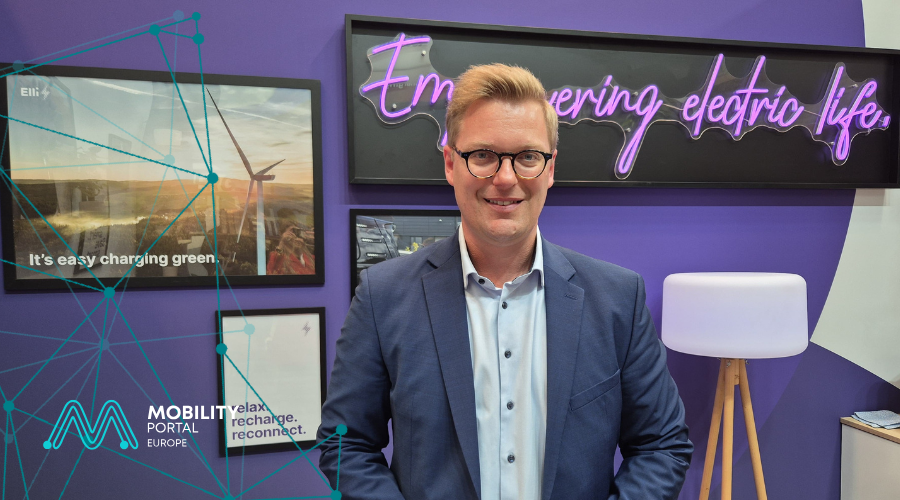At Power2Drive 2025, one of the most significant events for electric mobility in Europe, Elli, the energy and charging arm of the Volkswagen Group, confirmed to Mobility Portal Europe its imminent entry into the French market.
The move will be driven by the rollout of the new Flexpole Plus, a DC charger with an integrated battery, capable of delivering up to 150 kW without requiring costly grid upgrades.
“The next step will be entering France,” announced Michael Gotthelf, Vice President of Residential and Commercial at Elli.

Already active in countries such as Germany, Austria, and Spain, the company adds another core market in Western Europe to its footprint.
Flexpole Plus: a modular response to an uneven infrastructure
In this context, the Flexpole Plus offers a flexible solution for constrained electrical networks. Thanks to its buffer battery system, the charger can be deployed in both urban and rural settings without the need for major grid reinforcements.
“We’ve been producing this unit for years and already have more than 1,000 chargers operating across Europe,” notes Gotthelf.
Its key technical features include:
- Flexible payment terminal, enabling charge point operators (CPOs) to use their preferred systems while remaining compliant with RVF regulations.
- Compatibility with local energy management systems, particularly useful in sites with solar PV installations.
“We want charging an electric car to be as simple as charging a smartphone,” Gotthelf summarised, emphasising the user-centric approach.
Another major improvement was made to the human-machine interface (HMI). “It’s crucial to provide drivers with a clear and effective experience,” he stressed.

The updated HMI now allows operators to fully customise the interface — selecting language, colours, displayed data, and even applying their own branding. This flexibility ensures the charger aligns with both regulatory demands and diverse business models expanding across the continent.
A growing EV ecosystem… with persistent challenges
Elli’s announcement arrives at a time of rapid expansion in France’s public charging network.
According to the IRVE Barometer from Avere France, as of March 2025, the country had 129,305 public EV charging points — a 44% increase over the previous year. In just twelve months, 39,593 new units were installed, averaging 3,300 per month.
While France has now surpassed its national goal of 100,000 public chargers, structural challenges remain in terms of geographical equity, installed power capacity, and corridor coverage.
Currently:
- 72% of chargers provide 22 kW or less, designed primarily for long-duration or destination charging.
- Only 4% support ultra-fast charging (above 150 kW), which is crucial for fleets and long-distance travel.
- 88% of charging points report good technical availability, yet distribution remains uneven, with urban hubs favoured over rural and logistical zones.
France as a testbed for a scalable model
France now serves as a litmus test for Elli’s scalable deployment strategy. According to Avere, 36% of charging points are located in car parks, 18% in retail stores, and just 6% at fuel stations.
This reveals a significant opportunity to transform traditional fuelling stations into electric charging hubs — particularly in regions like Corsica or Bourgogne-Franche-Comté, where infrastructure density remains low.
In Germany, Elli is already working with UNITI, the association representing over 8,600 service stations, to enable this model. The agreement aims to turn fuel stations into fast-charging nodes, and could soon be replicated in the French context.
An expansion outlook that could cross continents
Although Elli is closely monitoring emerging markets in South America and Africa, its strategic focus remains in Europe.
“We do observe emerging markets in those regions, but again, like in South Africa, there are limitations in grid capacity,” Gotthelf noted.
Given these barriers, Elli continues to watch for market volume growth before committing. “If we see a market expanding, we also seek strategic partnerships to enter it,” he explained.
When asked specifically about Southern Europe, Gotthelf confirmed: “We’ve been established in Spain for years, which I consider essential. And the next step will be entering France.”








